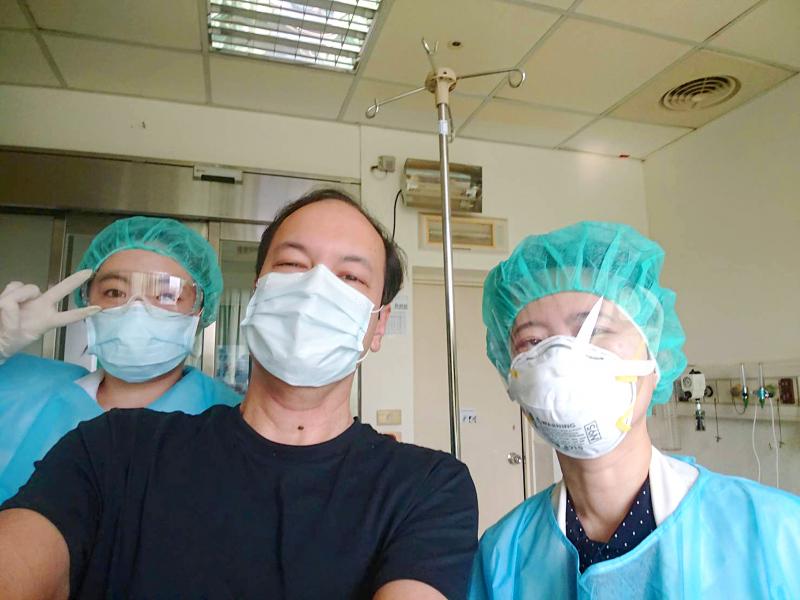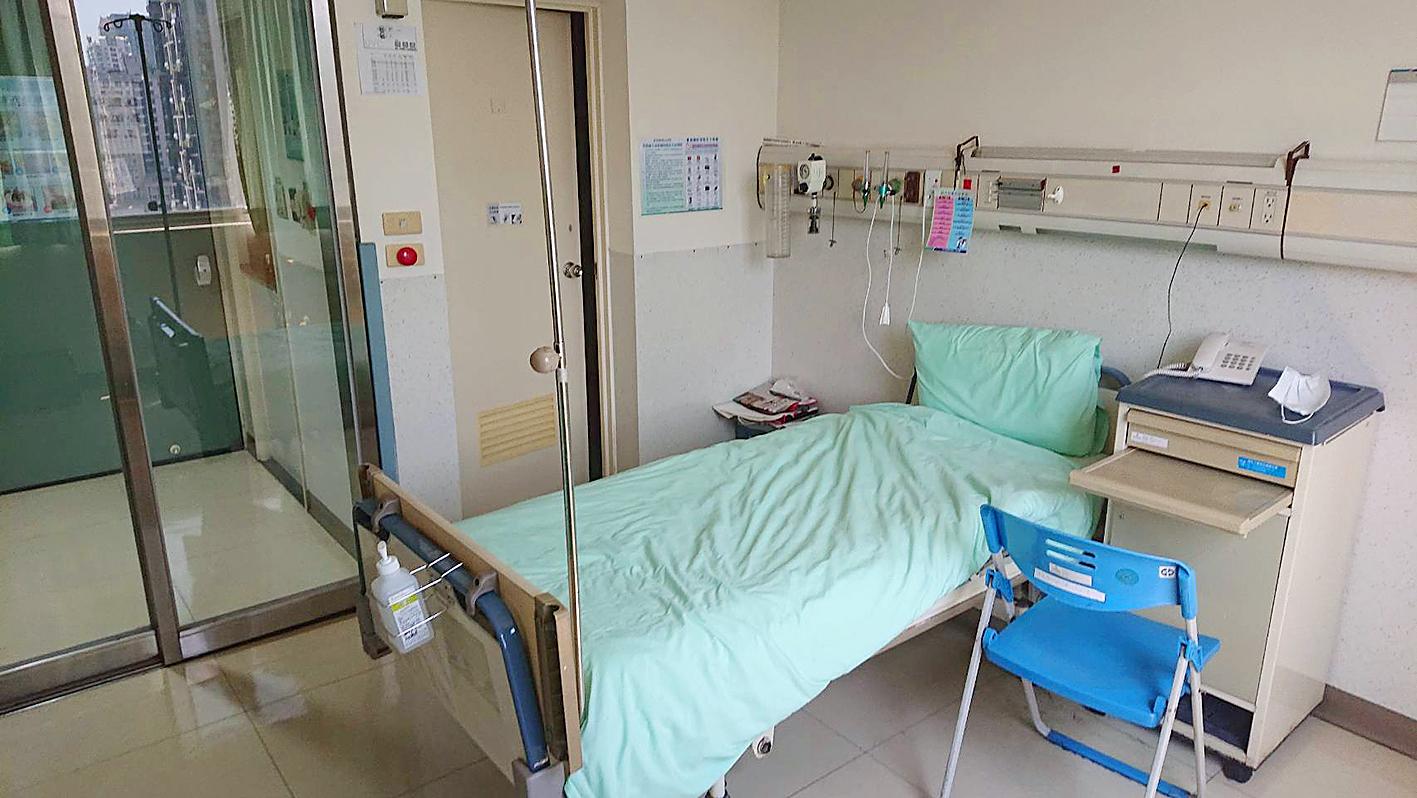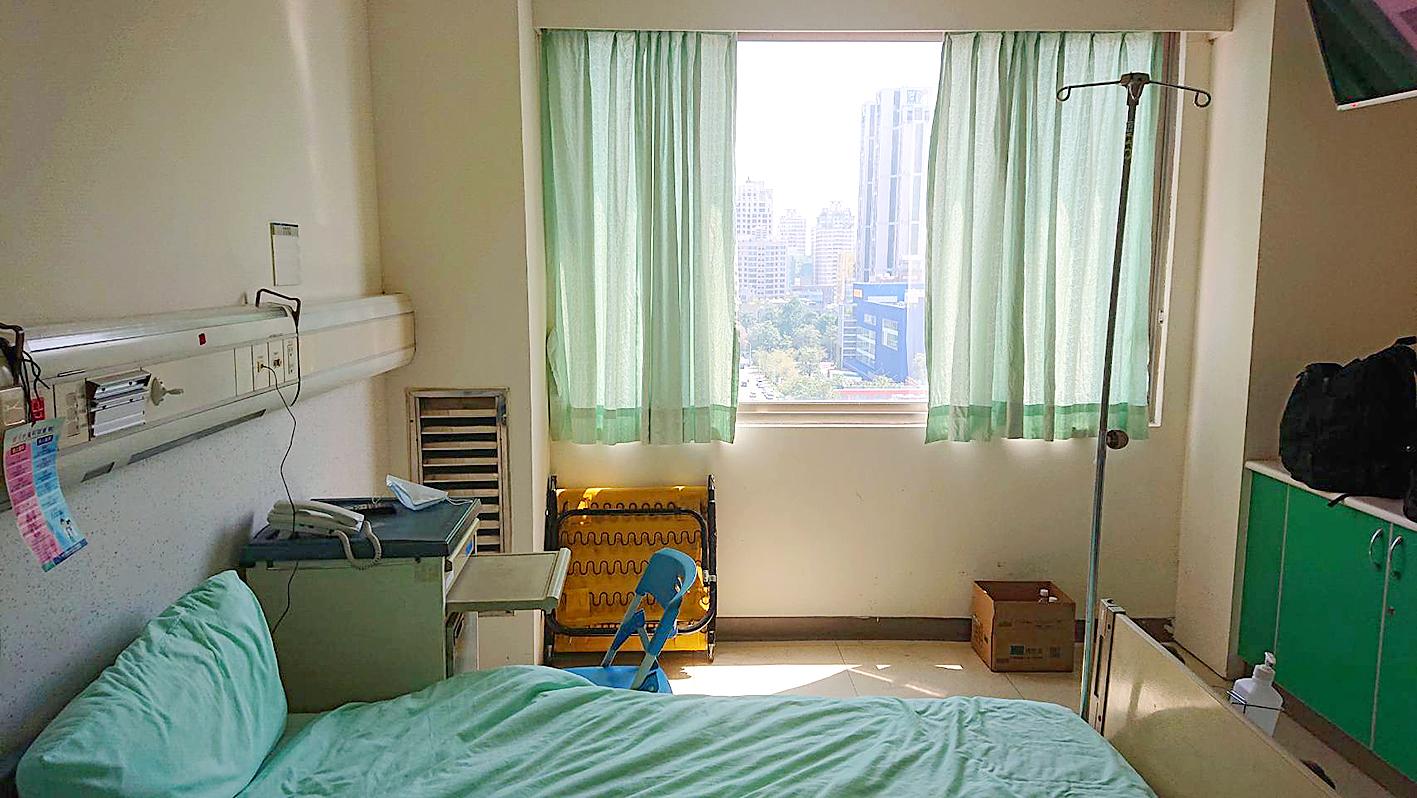The chills were what first tipped me off that something was wrong. It was an early Thursday evening in late February and I was sitting in my office. I normally hit an energy low this time of the day but this was different, as I suddenly felt chilled, absolutely drained of energy, the lightest of achiness in my muscles and joints and a slight pain behind my eyeballs.
I went home, took a long hot shower and went to bed early. After a full day of rest, I felt normal enough on Saturday to jump on my bike and enjoy a vigorous 50-60km ride. Happy that I had defeated perhaps some sort of 24-hour bug, I enjoyed the rest of the weekend.
Nevertheless, in the week that followed, I continued to experience chills, especially in the evenings, sometimes accompanied by night sweats.

Photo: Douglas Habecker
It’s noteworthy that during these days, I passed several outside temperature checks with no issues.
The dull pain behind my eyeballs persisted and around midweek I started a sporadic, dry cough. Just as aggravating, my sense of taste seemed to change so that I entirely lost my appetite and almost had to force myself to eat two meals a day. When I started noticing blood in the phlegm I was coughing up, I realized it was time to seek professional medical advice. At the back of my mind was the specter of the coronavirus that was steadily accumulating attention and cases in Taiwan and across Asia.
TESTING POSITIVE

Photo: Douglas Habecker
I drove to a well-known Taichung hospital and walked into the Emergency Room. Feeling slightly silly, I told the receptionists that I hadn’t been feeling well and wanted a coronavirus test. After registration and a wait, I was given an x-ray, had blood drawn and later was ushered in to see a doctor, who performed a nasal swab and asked me about my symptoms and recent whereabouts (I’d been in Taichung since returning from Pennsylvania on Jan. 11).
After all this, I was put in an isolated corner of an almost-empty ER recovery room and hooked up to an IV.
Later, the doctor came in and told me that while my profile didn’t fit that of a coronavirus victim — with Taiwan having little/no community transmission and me having been in Taiwan for almost two months — he saw a bit of cloudiness on a corner of one lung and didn’t like the results of my white/red blood count. Therefore, he recommended that I spend two to three nights at the hospital for observation and treatment, in a private room so that there was no risk of infecting anyone else. Surprised, I reluctantly agreed to stay over and later in the evening was taken up to a spacious private room.

Photo: Douglas Habecker
The next three days passed in a blur of day and night IV antibiotic drips, combined with oral anti-flu and other medications, plus more blood tests. While my daytime temperatures were mostly normal, I would sometimes run a fever at night, leading the nurse to bring in a chilled “ice pillow.”
Within a few days, my chills and fevers did end with the only remaining symptom being the occasional cough, achiness behind my eyeballs and a complete lack of appetite. My breathing remained normal throughout.
The handful of friends who visited me — wearing masks and keeping a good distance — did helpfully bring outside food but even getting normal favorites down was a tedious, unpleasant task. At the same time, the doctor assigned to my case kept quizzing me about my symptoms as well as recent activities.
Perhaps this helped to jog a small memory that popped into my head, one that would quickly have a huge impact.
On the Monday before I started feeling ill, I had hosted four visiting friends from Washington State. They were on a three-day stopover in Taiwan on their way to a two-week stay in Thailand and took a day trip down from Taipei so that I could show them around Taichung, which I did in my car. Over dinner that evening before they took the High Speed Rail (HSR) back to Taipei, I briefly overheard one of my friends complaining about chills and “coming down with something” but didn’t think much of it.
From my hospital bed, I sent a LINE message to his wife, asking how the rest of their trip had been and she responded that my friend had indeed gotten sick with some unknown ailment and symptoms that seemed to mirror my own. A day or two after arriving in Thailand, she too had gotten sick, followed by a third member of the group. However, all three seemed to mostly recover after a few days.
DIRE NEWS
When I conveyed this to my doctor, she was immediately alarmed and ordered a COVID-19 test. Bans were also put in place against me leaving my room and any visitors, as well as the nursing staff, began wearing full personal protective gear.
The next day, a LINE message from my American friends brought even more dire news — the elderly mother of the friend who hadn’t felt well in Taichung had just tested positive for COVID-19 back in Washington State. My friend had spent a couple hours in close contact with her days before coming to Taiwan.
Nevertheless, my first coronavirus test wasn’t conclusive, leading to a second test. As this was happening, I received a call from the Taichung City Government Health Bureau, asking more questions and notifying me that they had requested that the hospital to move me to a negative-pressure isolation room, which happened immediately.
The much smaller room had its own bathroom and a big window but I was isolated from the world by a sliding glass door, a small atrium and an outer metal door. I soon learned to react like Pavlov’s dog to the swooshing sound whenever that door opened, scrambling to put on my face mask in preparation for arriving hospital staff.
Finally, on March 13, I was informed that two tests had come back as “weak positive” results for COVID-19. That evening, I had the dubious, slightly surreal experience of watching Minister of Health and Welfare Chen Shih-chung (陳時中) describe my case on national TV as Taiwan’s 50th Wuhan coronavirus infection.
LOCAL SUPPORT
As all this was happening, I started fielding a stream of phone calls from health bureau personnel, asking for a thorough review of where I’d been and who I’d interacted with over the past two-plus weeks. Helped by my old-fashioned calendar book, we made good progress although there were gaps of time difficult to recall.
What struck me most, though, was the courtesy, understanding, patience and discretion that these government officers always showed when talking to me, which helped make a challenging time so much easier. With my help, they also established communications with my American visitors to obtain further information about their time in Taipei and flights in/out of Taiwan. Despite big difficulties getting tested back in the US, it would eventually be established that all four caught COVID-19.
Simultaneously, I was scrambling via mobile phone with the equally difficult task of informing those I had significant contact with — that I could recall — of my diagnosis and to expect government calls and, in many cases, likely home quarantine.
It was easy to feel guilty about sharing this news with them, until I reminded myself that I was also an unwitting victim of this virus. To the huge credit of my colleagues, friends, business contacts and others who fell into this group, the overwhelming majority were understanding and supportive, showing deeper concern for my own condition.
The on-going stress of fielding constant back-and-forth local and international messages from concerned friends and relatives who had been informed led me to request confidentiality among those who knew, partly to prevent an even more overwhelming, emotionally draining flood of inquiries. I am reasonably sure that most fellow COVID-19 victims in Taiwan have appreciated the cover of anonymity, well-guarded by government and other involved personnel.
After things settled down, I was faced with another growing challenge — being locked up in a small room with very little face-to-face human contact. Hidden behind full protective gear, my nurses would deliver three meals a day and check temperatures and blood pressure morning and night, and my doctor would stop by daily to update me.
They often were nice enough to linger a few minutes and engage in lighter conversations about non-medical topics, and I deeply appreciated their helpfulness and friendliness despite the personal risks they took in caring for me.
However, most of my days were spent on my own. Fortunately, a series of deliveries to the hospital by very considerate friends ensured that I had plenty of snacks, books and essentials like extra underwear and clothing. I also had my laptop, hugely important in maintaining contact with the outside world and my sanity. I found it very helpful to establish a daily routine that included regular sleeping/waking times, basic personal upkeep and some exercise.
However, after rotating between my laptop, books and the TV countless times, it was far from easy and I often found myself staring at life in the city outside my window.
Besides a very slight, infrequent cough and some pressure in my lungs, I felt almost normal by my last week of hospitalization, although I never completely overcame the fear that my condition would suddenly, unexpectedly crash, like some of the COVID-19 cases I had read about.
One afternoon about nine days in, my taste buds and appetite suddenly reawakened, leaving me finishing every meal and scrambling for my snack hoard. Not long after, however, another chest x-ray showed that my lungs still hadn’t fully recovered, leading to a new round of medication. Despite this discouraging setback, I was informed 24 hours later that I had gotten my first negative COVID-19 test result, the first in three consecutive negative results required to be released, pending government review and approval.
This was followed by a second negative test, at which point my doctor said it would be extremely unlikely and unlucky for me to get a positive result on my third test. Fortunately, she was right.
This result went to health officials for evaluation and they agreed to my release, although it would be a further two to three days until the hospital received the official document that would allow me to depart as Taiwan’s 30th discharged coronavirus patient.
Not long before this uncertain moment, I was chatting with my doctor, who commented that my case was one of the fastest recovery times seen in Taiwan to date, as well as her hospital’s first COVID-19 patient.
However, she asked for suggestions and input, out of certainty that I wouldn’t be the last occupant of that special room. Looking around the small space that had been my sanctuary and my prison for over two weeks, I realized it was very likely that others will be lying in that same bed, staring at the same walls and window, as they struggle to overcome this virus as I did. They have my deepest, most heartfelt wishes that — like me — they will recover and return to the lives they enjoyed before this terrible interruption.

That US assistance was a model for Taiwan’s spectacular development success was early recognized by policymakers and analysts. In a report to the US Congress for the fiscal year 1962, former President John F. Kennedy noted Taiwan’s “rapid economic growth,” was “producing a substantial net gain in living.” Kennedy had a stake in Taiwan’s achievements and the US’ official development assistance (ODA) in general: In September 1961, his entreaty to make the 1960s a “decade of development,” and an accompanying proposal for dedicated legislation to this end, had been formalized by congressional passage of the Foreign Assistance Act. Two

March 31 to April 6 On May 13, 1950, National Taiwan University Hospital otolaryngologist Su You-peng (蘇友鵬) was summoned to the director’s office. He thought someone had complained about him practicing the violin at night, but when he entered the room, he knew something was terribly wrong. He saw several burly men who appeared to be government secret agents, and three other resident doctors: internist Hsu Chiang (許強), dermatologist Hu Pao-chen (胡寶珍) and ophthalmologist Hu Hsin-lin (胡鑫麟). They were handcuffed, herded onto two jeeps and taken to the Secrecy Bureau (保密局) for questioning. Su was still in his doctor’s robes at

Last week the Democratic Progressive Party (DPP) said that the budget cuts voted for by the China-aligned parties in the legislature, are intended to force the DPP to hike electricity rates. The public would then blame it for the rate hike. It’s fairly clear that the first part of that is correct. Slashing the budget of state-run Taiwan Power Co (Taipower, 台電) is a move intended to cause discontent with the DPP when electricity rates go up. Taipower’s debt, NT$422.9 billion (US$12.78 billion), is one of the numerous permanent crises created by the nation’s construction-industrial state and the developmentalist mentality it

Experts say that the devastating earthquake in Myanmar on Friday was likely the strongest to hit the country in decades, with disaster modeling suggesting thousands could be dead. Automatic assessments from the US Geological Survey (USGS) said the shallow 7.7-magnitude quake northwest of the central Myanmar city of Sagaing triggered a red alert for shaking-related fatalities and economic losses. “High casualties and extensive damage are probable and the disaster is likely widespread,” it said, locating the epicentre near the central Myanmar city of Mandalay, home to more than a million people. Myanmar’s ruling junta said on Saturday morning that the number killed had